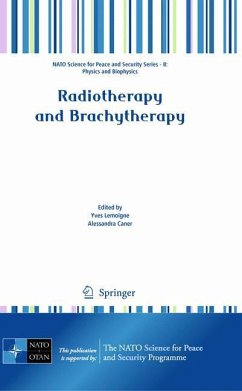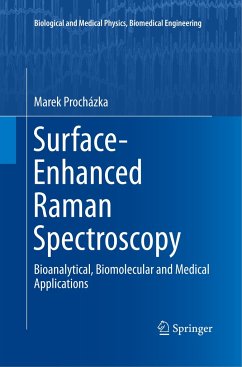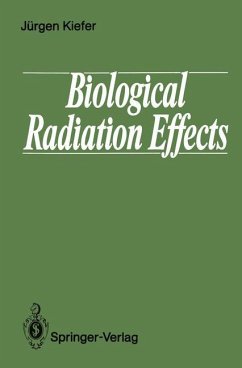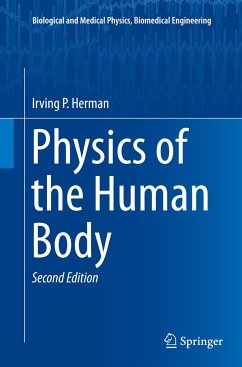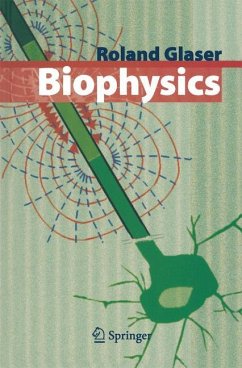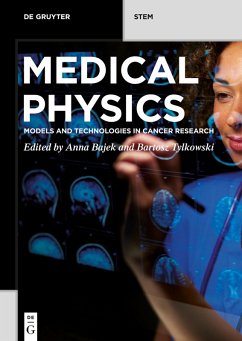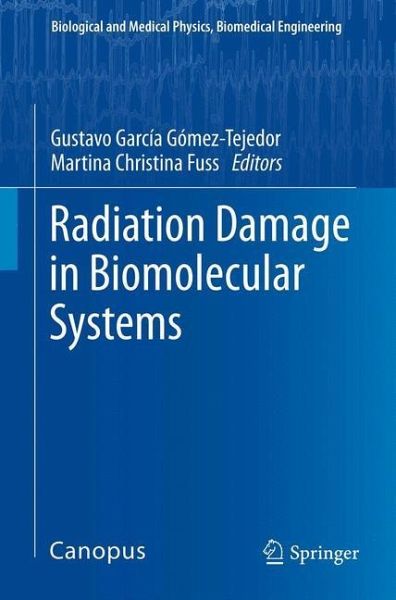
Radiation Damage in Biomolecular Systems

PAYBACK Punkte
57 °P sammeln!
Since the discovery of X-rays and radioactivity, ionizing radiations have been widely applied in medicine both for diagnostic and therapeutic purposes. The risks associated with radiation exposure and handling led to the parallel development of the field of radiation protection.Pioneering experiments done by Sanche and co-workers in 2000 showed that low-energy secondary electrons, which are abundantly generated along radiation tracks, are primarily responsible for radiation damage through successive interactions with the molecular constituents of the medium. Apart from ionizing processes, whic...
Since the discovery of X-rays and radioactivity, ionizing radiations have been widely applied in medicine both for diagnostic and therapeutic purposes. The risks associated with radiation exposure and handling led to the parallel development of the field of radiation protection.
Pioneering experiments done by Sanche and co-workers in 2000 showed that low-energy secondary electrons, which are abundantly generated along radiation tracks, are primarily responsible for radiation damage through successive interactions with the molecular constituents of the medium. Apart from ionizing processes, which are usually related to radiation damage, below the ionization level low-energy electrons can induce molecular fragmentation via dissociative processes such as internal excitation and electron attachment. This prompted collaborative projects between different research groups from European countries together with other specialists from Canada, the USA and Australia.
This book summarizes the advances achieved by these research groups after more than ten years of studies on radiation damage in biomolecular systems.
An extensive Part I deals with recent experimental and theoretical findings on radiation induced damage at the molecular level. It includes many contributions on electron and positron collisions with biologically relevant molecules. X-ray and ion interactions are also covered. Part II addresses different approaches to radiation damage modelling. In Part III biomedical aspects of radiation effects are treated on different scales. After the physics-oriented focus of the previous parts, there is a gradual transition to biology and medicine with the increasing size of the object studied. Finally, Part IV is dedicated to current trends and novel techniques in radiation reserach and the applications hence arising. It includes new developments in radiotherapy and related cancer therapies, as well as technical optimizations of accelerators andtotally new equipment designs, giving a glimpse of the near future of radiation-based medical treatments.
Pioneering experiments done by Sanche and co-workers in 2000 showed that low-energy secondary electrons, which are abundantly generated along radiation tracks, are primarily responsible for radiation damage through successive interactions with the molecular constituents of the medium. Apart from ionizing processes, which are usually related to radiation damage, below the ionization level low-energy electrons can induce molecular fragmentation via dissociative processes such as internal excitation and electron attachment. This prompted collaborative projects between different research groups from European countries together with other specialists from Canada, the USA and Australia.
This book summarizes the advances achieved by these research groups after more than ten years of studies on radiation damage in biomolecular systems.
An extensive Part I deals with recent experimental and theoretical findings on radiation induced damage at the molecular level. It includes many contributions on electron and positron collisions with biologically relevant molecules. X-ray and ion interactions are also covered. Part II addresses different approaches to radiation damage modelling. In Part III biomedical aspects of radiation effects are treated on different scales. After the physics-oriented focus of the previous parts, there is a gradual transition to biology and medicine with the increasing size of the object studied. Finally, Part IV is dedicated to current trends and novel techniques in radiation reserach and the applications hence arising. It includes new developments in radiotherapy and related cancer therapies, as well as technical optimizations of accelerators andtotally new equipment designs, giving a glimpse of the near future of radiation-based medical treatments.





